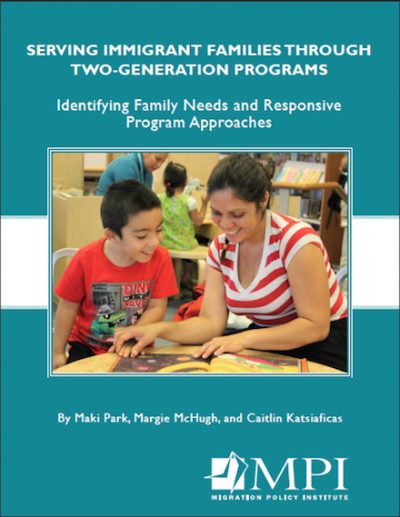Terminology Check
This study defines two-generation programs as those that 1) provide services to both kids and parents; and 2) track outcomes for both kids and parents.

|
This report shares key facts about immigrant parents with young children and examines 11 programs that have successfully served immigrant and refugee families using a two-generation approach. Readers will learn about the difficulties these programs face, what they are doing well, and what policymakers and community stakeholders need to know to support this vulnerable — and growing — demographic. |
|
Many immigrant parents have specific challenges, such as limited English proficiency and low levels of formal education, that require tailored approaches in order for their families succeed. At the same time, America’s immigrant population is diverse. A long list of factors — including marital status, length of time in the United States, nationality, employment status and immigration status — can impact which two-generation program elements immigrant families may need. |